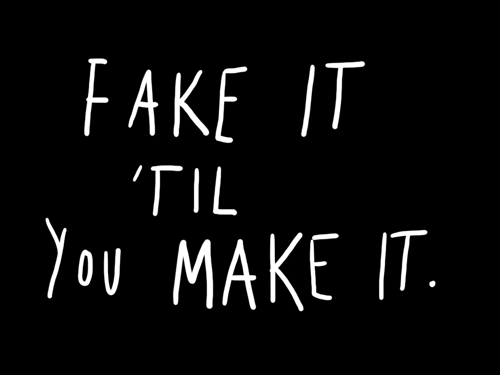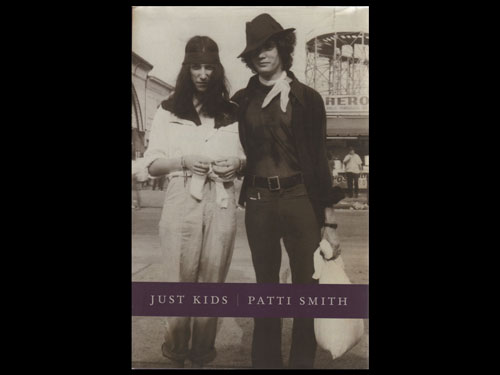There was a video going around the internet last year of Rainn Wilson, the guy who plays Dwight on The Office. He was talking about creative block, and he said this thing that drove me nuts, because I feel like it’s a license for so many people to put off making things: “If you don’t know who you are or what you’re about or what you believe in it’s really pretty impossible to be creative.”
If I waited to know “who I was” or “what I was about” before I started “being creative”, well, I’d still be sitting around trying to figure myself out instead of making things. In my experience, it’s in the act of making things that we figure out who we are.

You’re ready. Start making stuff.
You might be scared. That’s natural.
There’s this very real thing that runs rampant in educated people. It’s called imposter syndrome. The clinical definition is a “psychological phenomenon in which people are unable to internalize their accomplishments.” It means that you feel like a phony, like you’re just winging it, that you really don’t have any idea what you’re doing.
Guess what?
None of us do. I had no idea what I was doing when I started blacking out newspaper columns. All I knew was that it felt good. It didn’t feel like work. It felt like play.
Ask any real artist, and they’ll tell you the truth: they don’t know where the good stuff comes from. They just show up to do their thing. Every day.
Have you ever heard of dramaturgy? It’s a fancy sociological term for something this guy in England said about 400 years ago:
All the world’s a stage,
And all the men and women merely players:
They have their exits and their entrances;
And one man in his time plays many parts…
Another way to say this:

I love this phrase. There’s two ways to read it: Fake it ‘til you make it, as in, fake it until you’re successful, until everybody sees you the way you want, etc. Or, fake it til’ you make it, as in, pretend to be making something until you actually make something. I love that idea.
I also love the book Just Kids by Patti Smith. I love it because it’s a story about how two friends moved to New York and learned to be artists. You know how they learned to be artists? They pretended to be artists. I’ll spoil the book for you and describe my favorite scene, the turning scene in the book: Patti Smith and her friend Robert Maplethorpe dress up in all their gypsy gear and they go to Washington Square, where everybody’s hanging out, and this old couple kind of gawks at them, and the woman says to her husband, “Oh, take their picture. I think they’re artists.” “Oh, go on,” he shrugged. “They’re just kids.”
The point is: all the world’s a stage. You need a stage and you need a costume and you need a script. The stage is your workspace. It can be a studio, a desk, or a sketchbook. The costume is your outfit, your painting pants, or your writing slippers, or your funny hat that gives you ideas. The script is just plain old time. An hour here, or an hour there. A script for a play is just time measured out for things to happen.
Fake it ’til you make it.
Courtesy: by Austin Kleon








